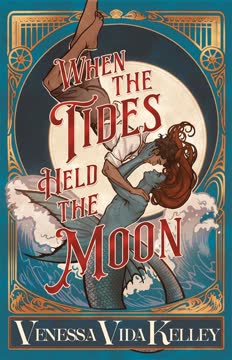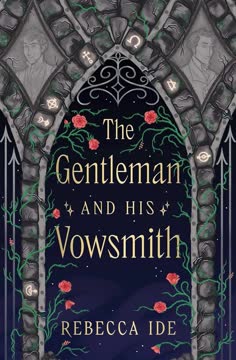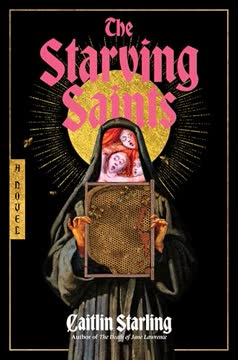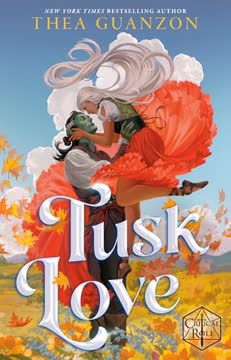Plot Summary
Hurricane's Memory, River's Fate
In 1899 Puerto Rico, a devastating hurricane drowns the world of young Benigno "Benny" Caldera. He loses his family and memories in the flood, saved only by a mysterious, otherworldly face glimpsed in the river's chaos. This trauma becomes the silent current beneath his life, shaping his sense of loss, displacement, and longing for belonging. The storm's violence is not just physical but existential, severing Benny from his past and setting him adrift. The memory of the river, the voice that called "¡Sálvalo!" and the sense of being both saved and abandoned, haunt him as he grows, forging a resilience laced with sorrow and a yearning for a home he cannot name.
Exile in Iron and Smoke
Benny, now a young man, arrives in early 20th-century Brooklyn, carrying the weight of his aunt Tití Luz's dying wish: to seek freedom and opportunity in America. He finds only alienation, racism, and backbreaking labor in a foundry, his lungs and spirit battered by the city's iron and smoke. Among Irish coworkers who mock his accent and heritage, Benny is both invisible and targeted, his skills as a blacksmith unrecognized, his dreams of belonging deferred. The city's promise of liberty is a cruel joke, and Benny's only solace is the memory of his aunt's faith and the necklace she gave him—a talisman of hope and protection in a world that offers little of either.
The Sideshow's Strange Commission
Benny's fortunes shift when he's tasked with building a peculiar iron-and-glass tank for a Coney Island sideshow. The commission, shrouded in secrecy and urgency, is for "Morgan's Menagerie of Human Oddities." The tank's design—ornate, mobile, and nearly indestructible—becomes Benny's obsession and escape, a canvas for his artistry and longing. When the flamboyant showman Sam Morgan arrives with his troupe—a strongman, a contortionist, and others—Benny glimpses a world of outsiders like himself. Yet, even as he pours his soul into the tank, his labor is claimed by others, and his place in the world remains uncertain. The tank, destined for spectacle, is a prison in disguise.
The Arrival of the Merman
Benny is drawn into the Menagerie's orbit, lured by a cryptic invitation. He joins Morgan's crew on a moonlit, perilous mission to capture a rumored mermaid in the East River. The hunt turns violent and tragic: a mermaid is killed, and a merman—Río—is netted, wounded, and caged in the very tank Benny built. The encounter is both wondrous and horrifying. Benny, complicit in the merman's captivity, is haunted by the mermaid's dying plea—"Sálvalo!"—and by the merman's human eyes, filled with terror and rage. The boundaries between myth and reality, captor and captive, blur, and Benny's guilt and fascination entwine.
Secrets, Schemes, and Suffering
As Río languishes in captivity, Benny is drawn deeper into the Menagerie's world—a found family of "freaks" and outcasts, each with their own scars and secrets. Morgan's ambitions grow ruthless, driven by debt and rivalry with Dreamland. The merman becomes both prize and pawn, subjected to cruel training and the agony of Morgan's whistle. Benny, torn between self-preservation and compassion, risks everything to ease Río's suffering, even as his own place in the Menagerie is threatened. The lines between ally and enemy, freedom and complicity, are painfully thin, and the cost of survival mounts for all.
The Menagerie's Found Family
Benny finds unexpected kinship among the Menagerie's performers: Sonia the contortionist, Matthias the strongman, Lulu the bearded lady, Vera the fire-breather, and others. Their camaraderie is fierce, their loyalty hard-won. Each is marked by difference—race, gender, disability, queerness—and by the world's cruelty. Yet, within the Albemarle Hotel, they create a sanctuary of acceptance, humor, and mutual care. Benny's skills and kindness earn him a place, but his heart remains restless, drawn to Río's suffering and the promise of something more. The Menagerie's motto—"With it, for it, never against it"—becomes a lifeline, even as the outside world encroaches.
Taming, Training, and Betrayal
Morgan's obsession with making Río the star of his show grows ever more brutal. The merman is tormented by the whistle, deprived of the sea, and forced to perform. Benny, now Río's caretaker, is caught between Morgan's demands and his own conscience. Attempts to comfort and befriend Río are fraught with mistrust and pain. The Menagerie's survival depends on the merman's exploitation, and Benny's complicity gnaws at him. The cost of spectacle is measured in suffering, and the bonds of trust are fragile, easily broken by fear, ambition, and the ever-present threat of betrayal.
Songs Across the Glass
In the quiet of the theater, Benny and Río begin to bridge the gulf between them. Through music—boleros, lullabies, and shared stories—they find a language beyond words. Benny's songs become a balm for Río's wounds, and Río's presence awakens in Benny a longing for connection, healing, and truth. Their conversations, first tentative and wary, grow intimate and confessional. They share memories of loss, exile, and the search for belonging. The glass between them is both barrier and mirror, reflecting their loneliness and the possibility of something transformative. The seeds of love are sown in sorrow and song.
The Currents of Love
As trust deepens, Benny and Río's relationship blossoms into love—tentative, forbidden, and fiercely tender. They confess their secrets: Benny's queerness, his fear of rejection, and his longing for a home; Río's grief, his fading strength, and his yearning for the sea. Their love is a rebellion against the world's violence, a sanctuary in the midst of captivity. Yet, the threat of exposure, the demands of the show, and the weight of their own histories loom. To love is to risk everything, and both must find the courage to be truly seen, even as the tides of fate rise.
The Whistle's Wound
The Menagerie's success brings disaster. Morgan's debts to gangsters, the rivalry with Dreamland, and the relentless heatwave converge. Río's health deteriorates—his scales dull, his spirit falters, and the water in his tank turns toxic. The whistle's pain is unendurable, and Benny is barred from offering comfort. The company, too, is fracturing under pressure. The cost of freedom becomes clear: to save Río is to risk the ruin of all. Benny is paralyzed by fear and guilt, unable to choose between love and loyalty, self and other. The limits of endurance are reached, and something must break.
The Heatwave and the Heart
As the city swelters and tempers fray, Benny and the Menagerie hatch a desperate plan: to free Río during the chaos of the preview show. The company, united by love and necessity, risks everything to save one of their own. Confessions are made, old wounds are aired, and the bonds of chosen family are tested and affirmed. Benny and Río's love, once secret and shameful, becomes a source of strength. The promise of escape is both hope and heartbreak, for to free Río is to lose him. The heart's true test is not survival, but the willingness to let go.
The Price of Freedom
The escape unfolds in chaos: the tank is broken, the merman smuggled through Dreamland, and the Menagerie scattered by fire and gunfire. Morgan's greed and violence reach their zenith, and Benny is gravely wounded. In the crucible of disaster, the true cost of freedom is revealed—not just for Río, but for all who have risked everything for love and justice. Sacrifice is demanded, and not all will survive unscathed. The world's cruelty is met with defiance, and the bonds forged in suffering prove stronger than iron. Liberation is both an ending and a beginning.
The Great Escape
As Dreamland burns, Benny carries Río to the ocean, pursued by enemies and haunted by loss. The city's spectacle is consumed by real flames, and the boundaries between myth and reality, human and other, are erased. In the water, Río's true nature is restored, and Benny's own transformation is revealed: he, too, is more than he seemed, shaped by the same currents of fate and love. The escape is both literal and symbolic—the breaking of chains, the claiming of identity, and the embrace of a future beyond the world's cages. The tides, at last, hold the moon.
Fire, Flight, and Farewell
In the aftermath, the Menagerie is forever changed. Some are lost, some find new purpose, and the world moves on, indifferent to the suffering and heroism of its outcasts. Benny and Río vanish into legend, their love a whispered secret among those who remember. The Menagerie's survivors rebuild, forging new families and futures from the ashes. The lessons of love, courage, and solidarity endure, even as the world forgets. The story's legacy is not in spectacle, but in the quiet, stubborn persistence of those who refuse to be erased.
The Ocean's Embrace
Benny, wounded and dying, is saved by Río's love and the healing power of the sea. In the ocean's embrace, the boundaries between human and mer, self and other, are dissolved. Benny's true nature is revealed—he is not just a survivor, but a child of the currents, destined for harmony beyond the tides. Their love, forged in suffering and song, becomes a new beginning. The world's cages cannot contain them; together, they become waves on the water, a testament to the power of love, resilience, and the longing for home.
Harmony Beyond the Tides
In the years that follow, the Menagerie's story becomes legend, its members finding new lives and loves. Benny and Río's fate is whispered among those who believe in miracles and the possibility of belonging. Their love endures, not as spectacle, but as harmony—a song that echoes across the tides, inviting all who are lost to find themselves in the embrace of the sea. The story's lesson is clear: freedom is not given, but forged; love is not a weakness, but the strongest current of all.
Characters
Benigno "Benny" Caldera
Benny is a young, queer, Afro–Puerto Rican blacksmith whose life is shaped by loss, exile, and resilience. Orphaned by the San Ciriaco hurricane and raised by his revolutionary aunt, he is driven by a longing for home and acceptance. In Brooklyn, he is an outsider—marked by race, language, and queerness—yet fiercely skilled and compassionate. Benny's journey is one of self-discovery: from silent suffering and self-erasure to the courage to love and be loved. His relationship with Río awakens his capacity for vulnerability, tenderness, and hope. Through music, labor, and sacrifice, Benny forges not just iron, but his own identity, ultimately finding harmony in love and the sea.
Río (The Merman)
Río is a merman—ancient, beautiful, and deeply wounded by loss and captivity. Torn from the ocean and his mother, he is both fierce and fragile, his pride masking profound grief and longing. His initial rage and mistrust toward Benny soften through shared suffering, music, and the slow growth of trust. Río's worldview is shaped by the "Currents"—a spiritual sense of destiny and interconnectedness. His love for Benny is transformative, teaching him the power of human resilience and the possibility of harmony between worlds. Río's journey is one from isolation and despair to love, healing, and the reclamation of his true self.
Sam Morgan
Sam Morgan is the charismatic, ruthless proprietor of the Menagerie. Driven by debt, rivalry, and a desperate need for validation, he exploits the suffering of others—human and mythic alike—for spectacle and profit. His charm masks deep insecurity and a capacity for cruelty, especially toward those who threaten his control. Morgan's relationship with Benny is fraught with manipulation and betrayal; with Río, it is one of captor and captive, marked by violence and obsession. Ultimately, Morgan is undone by his own ambition, his inability to see the humanity in others leading to his downfall.
Sonia Kutzler / Mary Schneider
Sonia, the "Flexible Fraülein," is a gifted performer and the youngest member of the Menagerie. Behind her stage persona is Mary Schneider, a Jewish immigrant marked by trauma and longing for control over her fate. Sonia is both vulnerable and fiercely ambitious, navigating the dangers of exploitation, sexual violence, and unrequited love. Her friendship with Benny is complex—tinged with jealousy, misunderstanding, and eventual solidarity. Sonia's journey is one of reclaiming her name, agency, and future, ultimately becoming the leader of the Menagerie's next chapter.
Matthias Martin
Matthias, the "Mighty Matthias," is the Menagerie's strongman and unofficial historian. Black, queer, and deeply principled, he is both a performer and a writer, chronicling the lives of his found family. Matthias is a source of wisdom, humor, and support for Benny, encouraging him to embrace his truth and fight for love. His own experiences of marginalization inform his empathy and skepticism. Matthias's loyalty is unwavering, and his strength is as much moral as physical. He is the keeper of the Menagerie's memory and spirit.
Lulu Porter
Lulu is the Menagerie's "fat lady," a widow, mother, and costumer whose warmth and resilience anchor the found family. She is nurturing, practical, and fiercely protective, offering comfort and counsel to all. Lulu's own struggles with body image, loss, and survival inform her empathy and humor. Her relationship with Benny is maternal, and her acceptance of his queerness and love for Río is unconditional. Lulu's journey is one of self-acceptance and the quiet heroism of care.
Vera Campbell
Vera is the Menagerie's fire-breather—a tough, witty, gender-nonconforming performer who defies expectations and refuses to be tamed. Her past is marked by abuse and escape, and she finds freedom and identity in the sideshow. Vera is both a source of comic relief and a fierce defender of her chosen family. Her friendship with Benny is built on mutual respect and shared outsider status. Vera's journey is one of self-definition and the courage to live authentically.
Eli and Emmett
Eli and Emmett perform as conjoined twins, but are in fact lovers who escaped violence and found sanctuary in the Menagerie. Their act is a gaff, but their devotion is real. Eli is gentle and optimistic; Emmett is gruff and protective. Their relationship with Benny evolves from suspicion to solidarity, especially as they recognize their shared queerness and outsider status. Eli and Emmett's story is one of survival, love, and the creation of family in a hostile world.
Madam Navya Attwal
Madam Navya is the Menagerie's "smallest woman," a Punjabi immigrant, scholar, and spiritualist. She is sharp-tongued, wise, and deeply principled, often serving as the company's moral compass. Navya's faith and knowledge of myth provide context and comfort, especially to Benny and Río. Her partnership with Igor is both comic and touching. Navya's journey is one of finding purpose and community far from home.
Igor Rybakov
Igor is the Menagerie's "giant," a Russian immigrant marked by loss and longing for connection. Despite his imposing size, he is gentle, kind, and often underestimated. Igor's love for Navya and his memories of his late wife shape his empathy and humor. He is a steadfast ally to Benny and the company, using his strength to protect and support. Igor's journey is one of finding home and love in unexpected places.
Plot Devices
Dual Narration and Shifting Perspectives
The novel alternates between Benny's first-person perspective and Río's lyrical, almost mythic voice. This dual narration allows readers to experience both the gritty reality of immigrant life and the otherworldly consciousness of the merman. The shifting perspectives deepen the emotional resonance, reveal hidden motivations, and highlight the gulf—and eventual bridge—between human and myth. The structure also mirrors the novel's themes of hybridity, liminality, and the search for harmony.
The Tank as Symbol and Prison
The iron-and-glass tank is both literal and symbolic: a marvel of craftsmanship, a spectacle for the masses, and a prison for Río. It represents the ways in which society cages and exploits the "other"—whether mythic, racial, sexual, or disabled. The tank's construction, maintenance, and eventual destruction parallel Benny's own journey from complicity to liberation. Its breaking is both a plot climax and a metaphor for breaking free from imposed identities and limitations.
Music, Language, and Song
Music—boleros, lullabies, and the invented song "Llévame, Río"—serves as a bridge between Benny and Río, between cultures, and between worlds. Song is a means of comfort, confession, and resistance. The novel's multilingualism (Spanish, English, Hindi, Russian, etc.) underscores the richness and complexity of hybrid identities. The act of naming—of self and other—is central, as is the power of language to wound and to heal.
Found Family and Chosen Kinship
The Menagerie is a microcosm of marginalized America: a found family of immigrants, queers, disabled people, and "freaks." Their motto—"With it, for it, never against it"—is both survival strategy and ethos. The bonds forged in adversity are tested by betrayal, ambition, and the demands of spectacle, but ultimately endure. The found family is both haven and crucible, shaping Benny's journey from exile to belonging.
The Currents and Destiny
Río's belief in the "Currents"—a mystical sense of destiny and interconnectedness—infuses the novel with a sense of the numinous. The Currents are both literal (the ocean's tides) and metaphorical (the forces that shape lives and histories). They represent the possibility of meaning in suffering, the hope that love and courage can alter fate. The novel's structure, with its recurring motifs of water, waves, and transformation, echoes this theme.
Foreshadowing and Circularity
The novel is rich in foreshadowing: the hurricane that begins Benny's story prefigures later disasters; the mermaid's dying plea—"Sálvalo!"—echoes through Benny's journey; the tank's construction anticipates its destruction. The narrative is circular, returning to images, songs, and questions first posed in childhood. The ending, with Benny and Río as "waves on the water," completes the arc from exile to harmony, from captivity to freedom.
Analysis
When the Tides Held the Moon is a luminous, genre-defying novel that fuses historical fiction, queer romance, and mythic fantasy to explore the costs and possibilities of belonging. At its heart, it is a story about the forging of identity in the crucible of loss, exile, and otherness. Benny's journey—from hurricane-orphaned boy to blacksmith, from outsider to beloved, from captive to liberator—mirrors the struggles of countless immigrants, queers, and "freaks" who have sought home in hostile worlds. The novel interrogates the violence of spectacle, the commodification of difference, and the ways in which society cages those it deems monstrous or unworthy. Yet, it is also a celebration of found family, resilience, and the transformative power of love. Through the relationship between Benny and Río, the novel imagines a future beyond binaries—human and myth, self and other, land and sea—where harmony is possible. Its lessons are urgent and enduring: freedom is not given, but claimed; love is not a weakness, but the strongest current of all; and the tides, in holding the moon, teach us that even the most impossible longings can shape the world.
Last updated:
Review Summary
When the Tides Held the Moon is a beautifully written queer historical fantasy romance set in 1910s Coney Island. It follows Benigno, a Puerto Rican immigrant, who falls in love with Rio, a captured merman. Readers praise the lyrical prose, diverse characters, found family themes, and stunning illustrations. Many consider it a masterpiece, highlighting the author's talent in worldbuilding and character development. While some found the pacing slow at times, most were captivated by the emotional depth and representation. The book has received overwhelmingly positive reviews for its unique blend of romance, fantasy, and historical elements.
Similar Books
Download PDF
Download EPUB
.epub digital book format is ideal for reading ebooks on phones, tablets, and e-readers.











